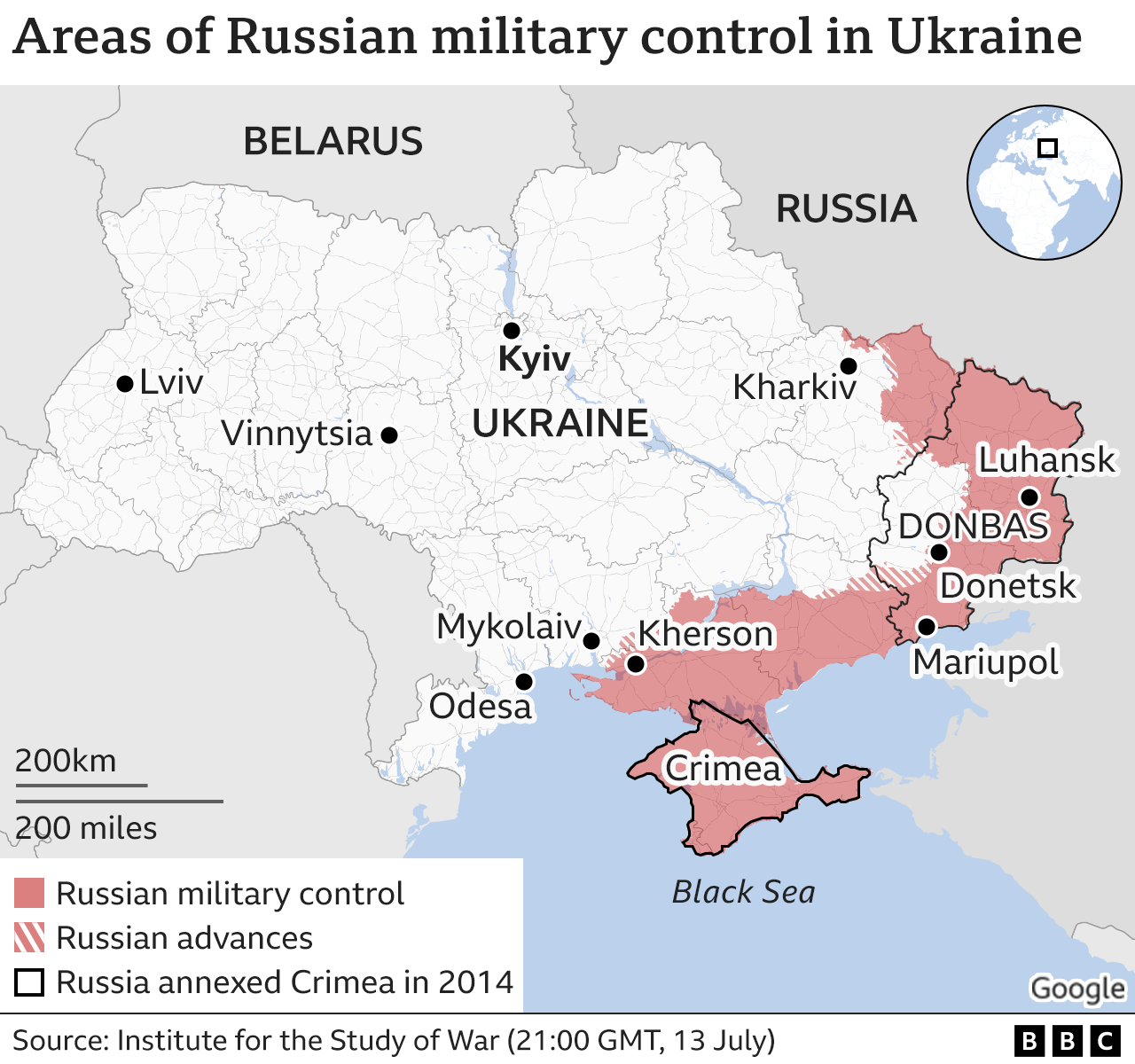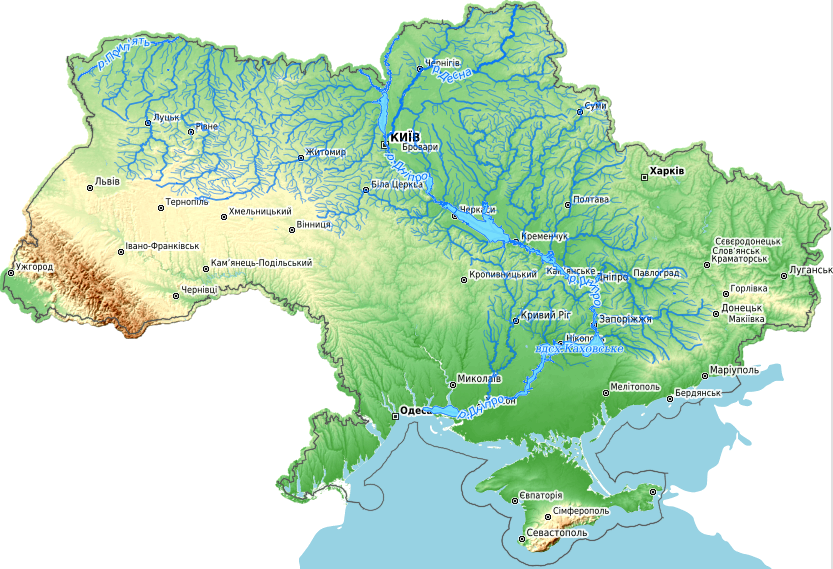|
All Global Research articles can be read in 51 languages by activating the Translate Website button below the author’s name.
To receive Global Research’s Daily Newsletter (selected articles), click here.
Follow us on Instagram and Twitter and subscribe to our Telegram Channel. Feel free to repost and share widely Global Research articles.
***
On November 9, Russian High Command announced it will retreat from the right-bank areas of the Kherson oblast (region). The current commander of Russia’s special military operation in Ukraine, Army General Sergei Surovikin, announced the plan in a report to Defence Minister Sergei Shoigu. Russian units will be relocated to new defensive lines along the Dnieper River. According to Surovikin, the move is aimed at preserving the lives and fighting capacity of Russian soldiers engaged in this area of the frontline.
“We will save the lives of our soldiers and the fighting capacity of our units. Keeping them on the right [western] bank [of the Dnieper River] is futile. Some of them can be redeployed on other fronts,” the Russian general stated.
The announcement, although shocking to many, was hardly unexpected as the new authorities of the Kherson oblast have been conducting the evacuation of civilians for weeks, indicating that the area was likely expected to see intensive fighting. Various Western media outlets are already reporting that the move is a “major setback” for Russia and a “big win” for the Kiev regime.
However, top-level Kiev regime officials are cautious about the announcement, with some even calling it a possible trap. According to Reuters, Mykhailo Podolyak, the senior adviser to the Neo-Nazi junta frontman Volodymyr Zelensky, stated that it was “too early to talk about a Russian troop pullout from the southern city of Kherson.”
“Until the Ukrainian flag is flying over Kherson, it makes no sense to talk about a Russian withdrawal,” Podolyak said in a statement.
Expectedly, other Kiev regime officials and the Neo-Nazi junta’s propaganda machine are already boasting that the event is an “absolute triumph.” The Kiev regime forces have been targeting the infrastructure in the area for months, including all the bridges and transport vessels on the Dnieper River and even dams, in particular the Kakhovka hydroelectric power plant, risking a major disaster if the floodgates were to be destroyed.
The US-supplied HIMARS MLRS and other Western weapons are also often used to target residential areas, killing dozens and wounding hundreds of civilians. General Surovikin himself also warned that the Neo-Nazi junta troops launching numerous rocket strikes on the Kakhovka hydroelectric plant and dam could cause thousands of civilian casualties.
“There will be an additional threat to the civilian population and a complete isolation of the group of our troops on the right bank of the Dnieper [River]. Under these conditions, the most rational option is to establish defense along the barrier line of the Dnieper [River],” Surovikin said, adding that the possible destruction of the dam would cause “an intensive discharge of water and a massive flooding of both banks of the Dnieper River.”
The right (western) bank of the Kherson oblast, although strategically important for possible future offensive operations toward Nikolayev, is certainly difficult to defend while also preserving the lives of civilians and preventing major damage to local infrastructure. Still, there are other possible problems that could arise if the Kiev regime forces gain uncontested control of the area, including putting Crimea within reach of artillery and missile units of the Neo-Nazi junta. Given their lack of concern for causing massive civilian casualties, this could become a major issue if not properly addressed. The main fresh water supply for the Crimean peninsula could also be in jeopardy, as it comes from the Kakhovka Reservoir which could end up becoming a direct frontline area.
However, it’s expected that the Russian military is already prepared for such contingencies. The Dnieper River is one of the largest in Europe, both by volume and in terms of width, making it an almost perfect defensive barrier and a major obstacle for the Kiev regime forces. Conducting offensive operations across the river could prove to be a deadly endeavor, one which the Neo-Nazi junta troops are hardly prepared for. Both sides are now sending additional reinforcements to the area, with the Kiev regime vowing to continue offensive operations despite suffering heavy casualties for months.
 \ \
For its part, the Russian military has been conducting successful defense, but as General Surovikin stated, it wants to reduce military and civilian casualties as much as possible. However, the Kiev regime forces’ increasingly intensive shelling of the Kherson city in recent weeks is creating complications for the Russian military’s logistics, which might be one of the reasons for the withdrawal. Western media and intelligence sources claim that approximately 40,000 Russian soldiers are now being evacuated to the left (eastern) bank of the Dnieper River. It can also be expected that the Russian military has already set up a large number of new artillery positions and that it will use them to target any Kiev regime units attempting to approach the Dnieper River.
As previously stated, although the withdrawal is being hailed as a “victory”, the reaction from Volodymyr Zelensky’s office implies that the fighting is still ongoing and that “this could be a staged retreat meant to soften Ukrainian resolve at a decisive moment…” The aforementioned statement by Podolyak is a clear indicator of this. Many geopolitical and military experts are also puzzled by such a public announcement, as withdrawals are usually conducted without giving the enemy time to prepare for an all-out advance against retreating forces. This would explain the Kiev regime’s caution, as many of the top-level officials are afraid that the move could soon prove to be a trap.
*
Note to readers: Please click the share buttons above. Follow us on Instagram and Twitter and subscribe to our Telegram Channel. Feel free to repost and share widely Global Research articles.
Drago Bosnic is an independent geopolitical and military analyst.
Featured image is from InfoBrics
|